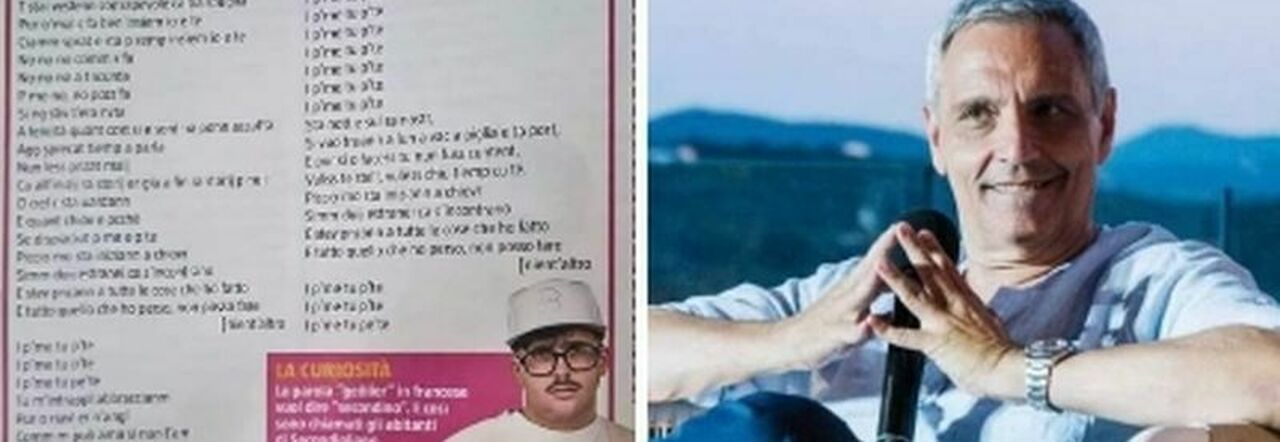The Neapolitan language is often at the center of quarrels on the web. In the last few hours, the center of controversy has been Geolier, the Neapolitan rapper who - for the first time in the history of the Festival - will bring a song entirely in Neapolitan to the Ariston stage.
Intellectuals and purists of the Neapolitan language on social media have risen up against the lyrics of the song titled «I p'me, tu p'te».
The reason is the linguistic writing of the song which, according to many, is incorrect and particularly far from the «Traditional Neapolitan» of Pino Danile or Eduardo De Filippo.
Supporting this controversy is primarily the Neapolitan writer Maurizio De Giovanni, who wrote in a post:
«It's an ancient and beautiful language, with which immense masterpieces have been written. It's a common heritage, it has a wonderful sound, it unites the masculine and feminine as love does. It does not deserve this torment. - explains De Giovanni, adding - There is no judgment on my part on the artist, his musical value or his success which I wish him with all my heart as a fellow countryman and fan of every positive expression of the territory».
The writer finally affirms that Neapolitan is a language and that it deserves respect like all others and that Geolier, to avoid slipping into this issue, should have asked for help in writing.
Many comments in support of De Giovanni. Especially from the nostalgic ones who underline the abyssal differences with the lyrics of the great Pino Daniele.
«Missing vowels, total absence of phonosyntactic doubling of consonants, signs of elision nonexistent or invented where they are not wanted. A perfect language for rap and not only, but Neapolitan, not this mess», supports the writer Angelo Forgione, adding that no one would ever have justified errors in writing in the Italian language.
At the same time however, there are also several comments that back Geolier, stating that he is a young and very successful singer, who attracts a large part of the new generations and who probably represents precisely the «evolution» of the Neapolitan language.
Even more so, in fact, it should not be forgotten that Geolier comes from a particular and specific reality and that, his artistic character fully represents that type of reality, both in linguistic terms (of slang) and in content.
In any case, we will have to wait for the start of the Festival to actually find out what will be the impact of Geolier's Neapolitan on the Ariston stage.

